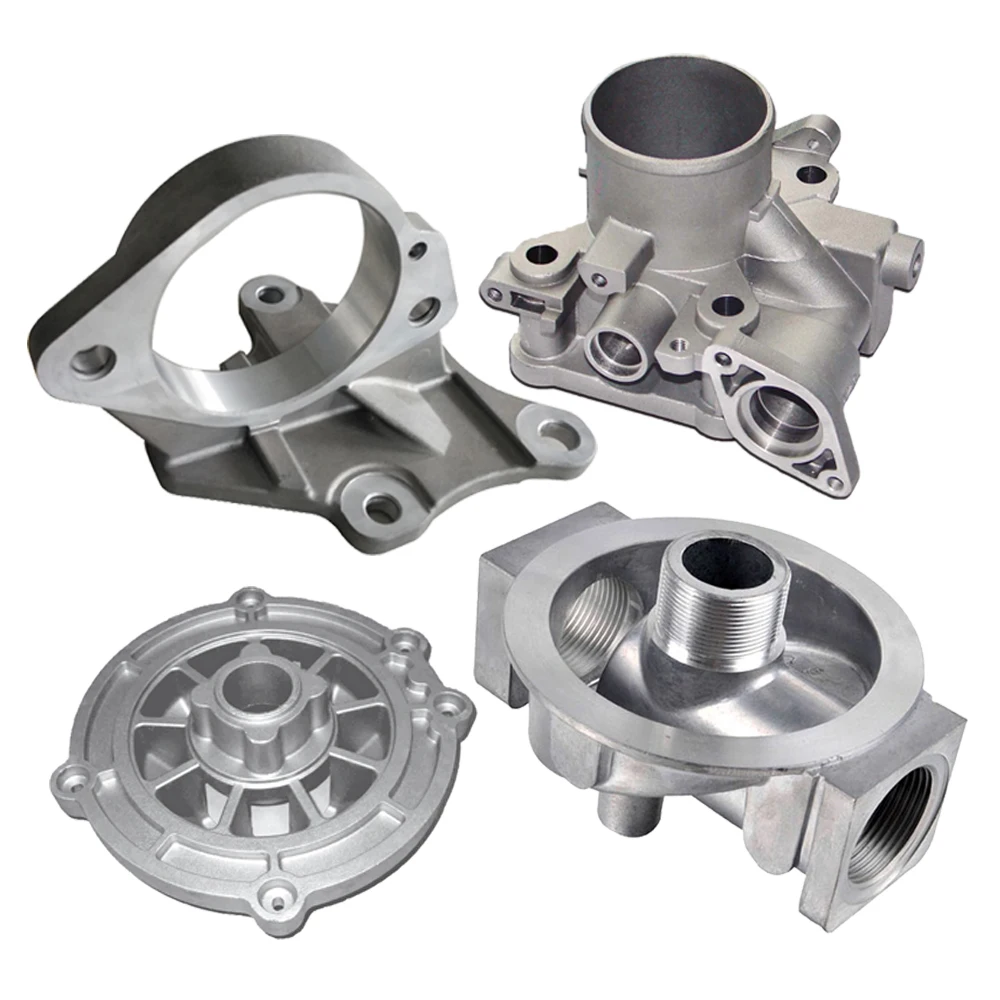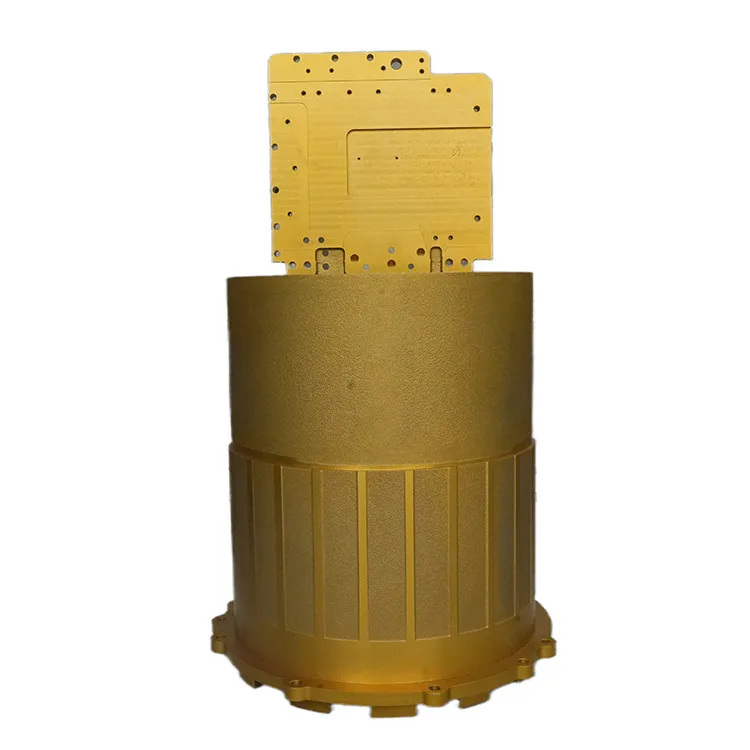The Function of Aluminum Foundries in Advancing Lightweight Manufacturing Solutions
Light weight aluminum shops significantly add to the advancement of lightweight production services. Their ingenious spreading modern technologies generate high-strength, light-weight components crucial for sectors such as vehicle and aerospace. This innovation not only improves product performance but also promotes sustainability with using recycled materials. As these factories adapt to emerging modern technologies and practices, they lead the means for future growths in making efficiency and environmental responsibility. What exists in advance in this transformative journey?
The Benefits of Lightweight Materials in Production
As sectors progressively look for effectiveness and sustainability, the adoption of lightweight products in manufacturing has become a crucial method - Aluminum Foundry. These products, especially aluminum and compounds, use various advantages that boost manufacturing procedures and product efficiency. Mainly, their lowered weight adds to lower energy usage during transportation and operation, leading to significant price savings
Moreover, light-weight materials assist in the style of more facility geometries, enabling better innovation in item growth. This flexibility usually causes improved capability and efficiency, providing to the advancing needs of modern customers.
In addition, making use of light-weight materials can boost the long life of items due to their resistance to deterioration and fatigue. This longevity not just reduces maintenance expenses yet likewise supports sustainability efforts, as longer-lasting items add to much less waste. To summarize, the advantages of lightweight materials are crucial in driving efficiency, development, and ecological obligation in production.
Innovations in Light Weight Aluminum Casting Technologies
Recent improvements in light weight aluminum casting technologies are revolutionizing the manufacturing landscape, especially in the production of light-weight parts. Technologies such as high-pressure die spreading and vacuum cleaner pass away casting have significantly enhanced the accuracy and surface coating of light weight aluminum components - aluminum casting. These techniques enable for the production of complex geometries while reducing material waste and enhancing mechanical residential properties

Furthermore, the execution of real-time tracking systems assures top quality control throughout the spreading procedure, leading to more regular product results. Jointly, these developments not just improve the efficiency of light weight aluminum components yet likewise support the sector's shift in the direction of even more sustainable production techniques.
Applications of Light Weight Aluminum Parts in Different Industries
While light weight aluminum parts have actually long been made use of in different industries, their flexibility and lightweight properties remain to drive ingenious applications across markets such as automobile, aerospace, and building and construction. In the automobile market, aluminum is significantly used for engine blocks, wheels, and body panels, boosting fuel performance and performance. Aerospace manufacturers utilize aluminum for aircraft structures and elements, taking advantage of its strength-to-weight proportion to enhance gas economy and payload capability.
In the building and construction market, light weight aluminum is favored for home window frameworks, roofing, and structural elements, providing toughness and resistance to corrosion while reducing general structure weight. Additionally, the electrical and electronic devices industries gain from light weight aluminum's conductivity and light-weight nature, using it in circuitry, rooms, and heat sinks. These diverse applications highlight the critical function of light weight aluminum parts, which not only fulfill market needs however additionally add to advancements in product layout and functionality across numerous areas.
Sustainability and Energy Performance in Aluminum Foundries
The aluminum foundry sector plays a vital function in Go Here advertising sustainability and energy performance, specifically as demand for lightweight elements proceeds to expand throughout various markets. Shops are increasingly embracing eco friendly methods, such as utilizing recycled light weight aluminum, which considerably lowers power usage and greenhouse gas emissions contrasted to key light weight aluminum manufacturing.
Innovations in casting technologies boost power effectiveness by maximizing the melting processes and reducing waste. Strategies like die casting and financial investment spreading enable for precise product use, lessening excess and scrap.
Additionally, many shops are investing in sustainable power resources to power operations, further decreasing their carbon footprint. Executing energy administration systems makes it possible for factories to monitor and improve power usage, guaranteeing they operate at peak effectiveness.

Future Trends in Lightweight Manufacturing Solutions
Exactly how will emerging innovations shape the future of lightweight production remedies? Advancements such as sophisticated materials, automation, and additive production are readied to redefine manufacturing processes. The combination of wise manufacturing modern technologies, including the Net of Points (IoT) and fabricated intelligence (AI), will certainly allow real-time monitoring and optimization, boosting effectiveness and decreasing waste.

As sustainability remains to be an extremely important issue, light-weight remedies will increasingly concentrate on recycling and reusing materials, straightening with round economic situation concepts. This development in lightweight manufacturing will not just enhance product performance yet additionally add to environmental objectives, making sure that the sector stays competitive in a quickly changing market landscape.
Often Asked Inquiries
Just How Do Aluminum Foundries Guarantee Quality Assurance in Production?
Light weight aluminum foundries assure quality assurance in production via extensive important site testing, standardized procedures, and continual surveillance - Aluminum Casting Company. They carry out sophisticated technologies and experienced personnel to keep consistency, decrease flaws, and fulfill industry standards throughout the manufacturing procedure
What Are the Main Tests Dealt With by Aluminum Foundries?
Aluminum shops deal with difficulties such as varying basic material costs, keeping manufacturing effectiveness, ensuring consistent high quality, adapting to technical improvements, and meeting environmental guidelines, every one of which impact their general operational efficiency and competitiveness on the market.
How Does Aluminum Recycling Effect Shop Workflow?
Light weight aluminum recycling substantially boosts shop procedures by lowering basic material prices, minimizing power intake, and decreasing environmental effect. click now This sustainable technique enables factories to enhance performance while satisfying raising demand for light-weight, high-performance aluminum items.
What Skills Are Required for Workers in Light Weight Aluminum Foundries?
Employees in aluminum factories need skills in metallurgy, machining, quality assurance, and security practices. Efficiency in operating equipment, comprehending alloy residential or commercial properties, and analytical are additionally crucial for effective manufacturing and preserving high safety criteria.
Exactly How Do Light Weight Aluminum Foundries Deal With Waste Administration?
Aluminum foundries manage waste through reusing scrap metal, using effective waste partition methods, and adhering to environmental guidelines. They implement lasting practices to lessen garbage dump payments, ensuring that unsafe materials are thrown away sensibly.
Aluminum factories considerably contribute to the evolution of lightweight manufacturing remedies. Recent improvements in light weight aluminum spreading innovations are revolutionizing the manufacturing landscape, specifically in the manufacturing of light-weight elements. While light weight aluminum elements have actually long been utilized in various industries, their convenience and lightweight residential or commercial properties proceed to drive cutting-edge applications across fields such as vehicle, aerospace, and building and construction. In addition, the electric and electronic devices sectors profit from light weight aluminum's conductivity and lightweight nature, utilizing it in circuitry, rooms, and heat sinks. The light weight aluminum shop sector plays a vital function in advertising sustainability and power performance, especially as demand for lightweight components continues to expand throughout various industries.